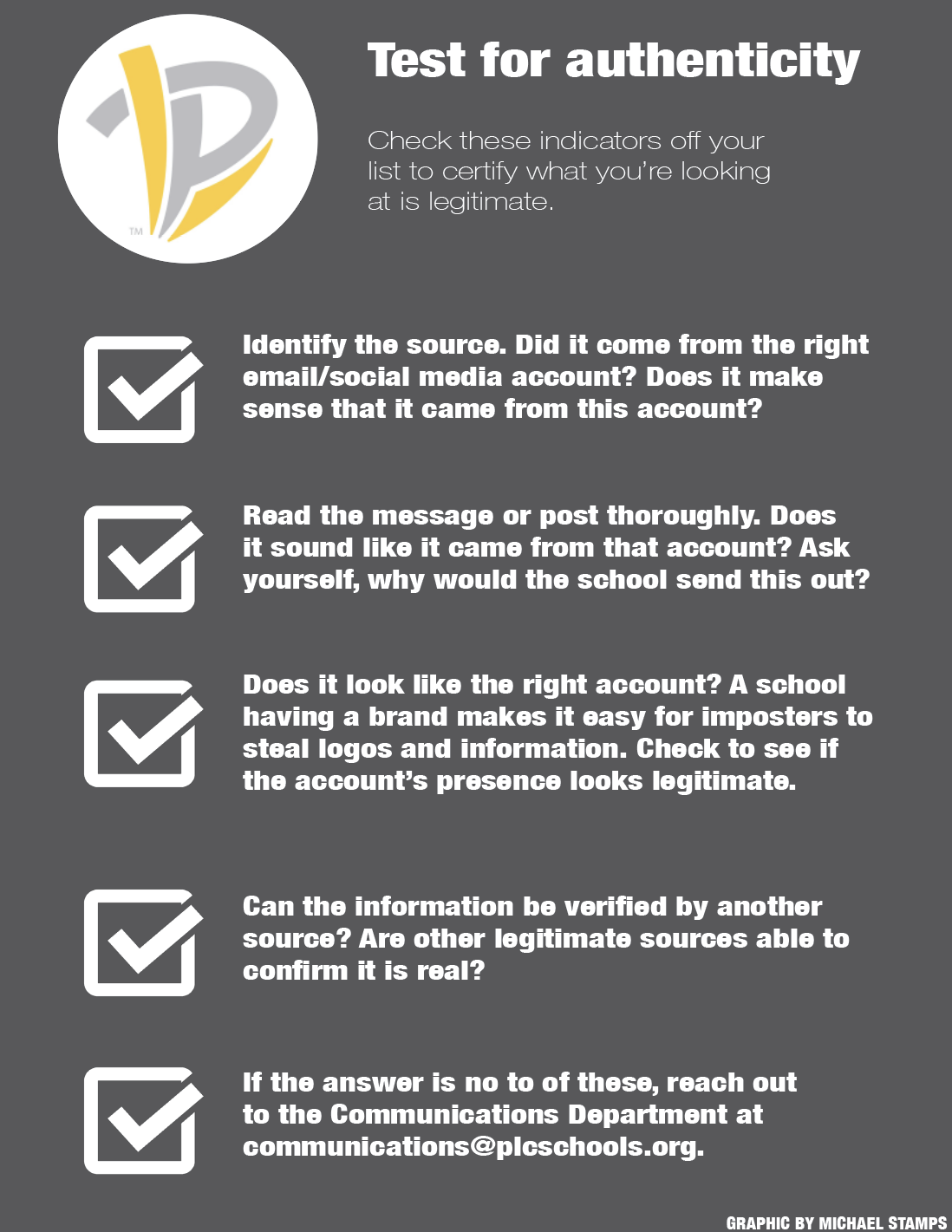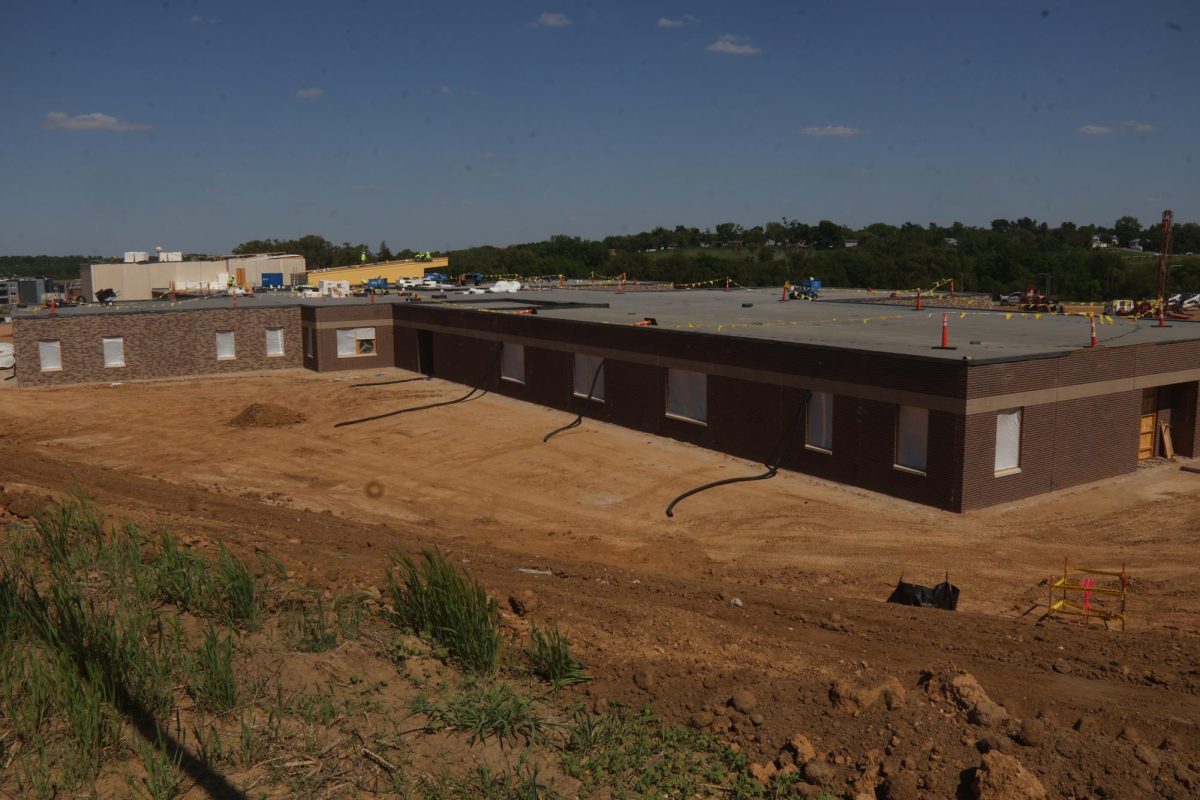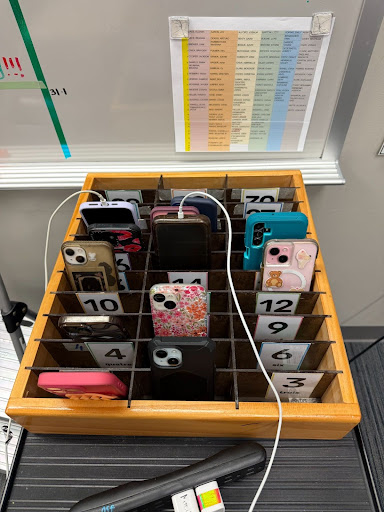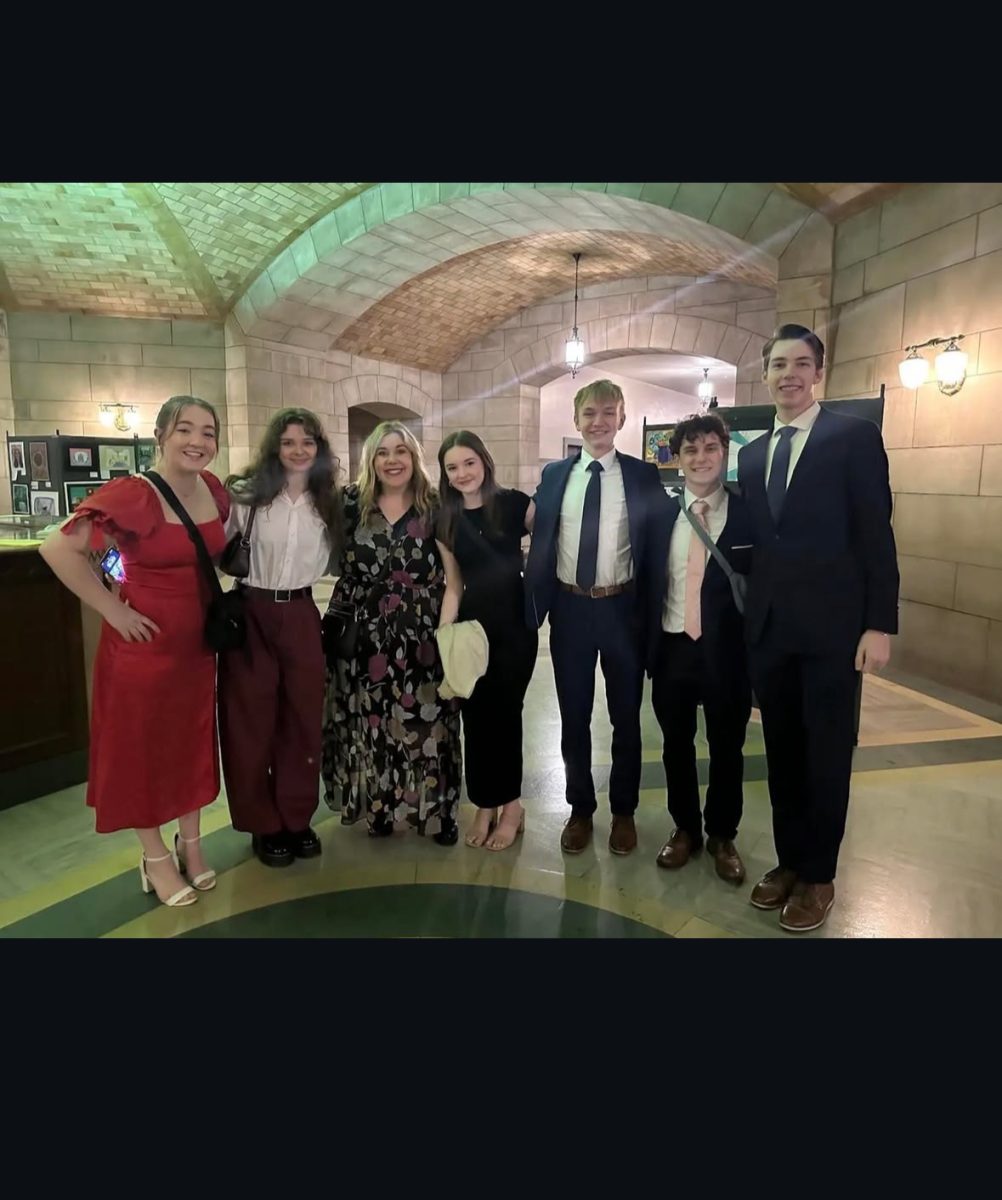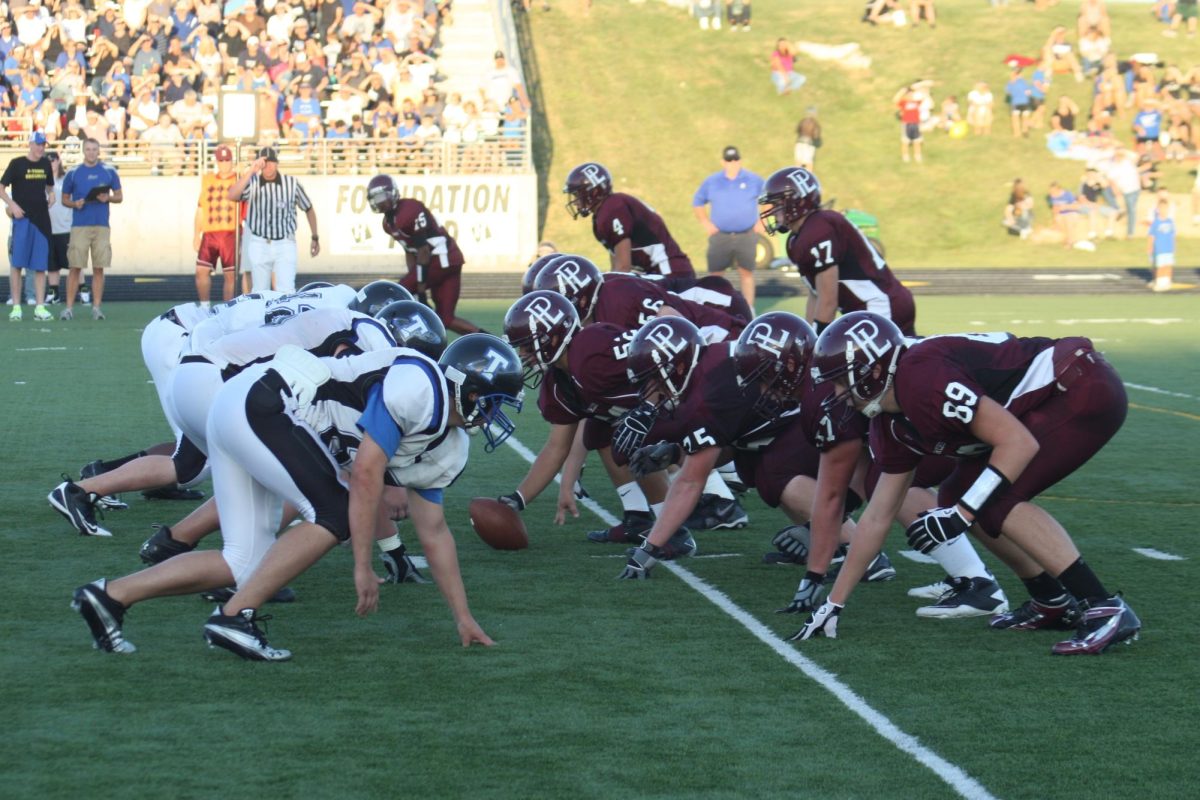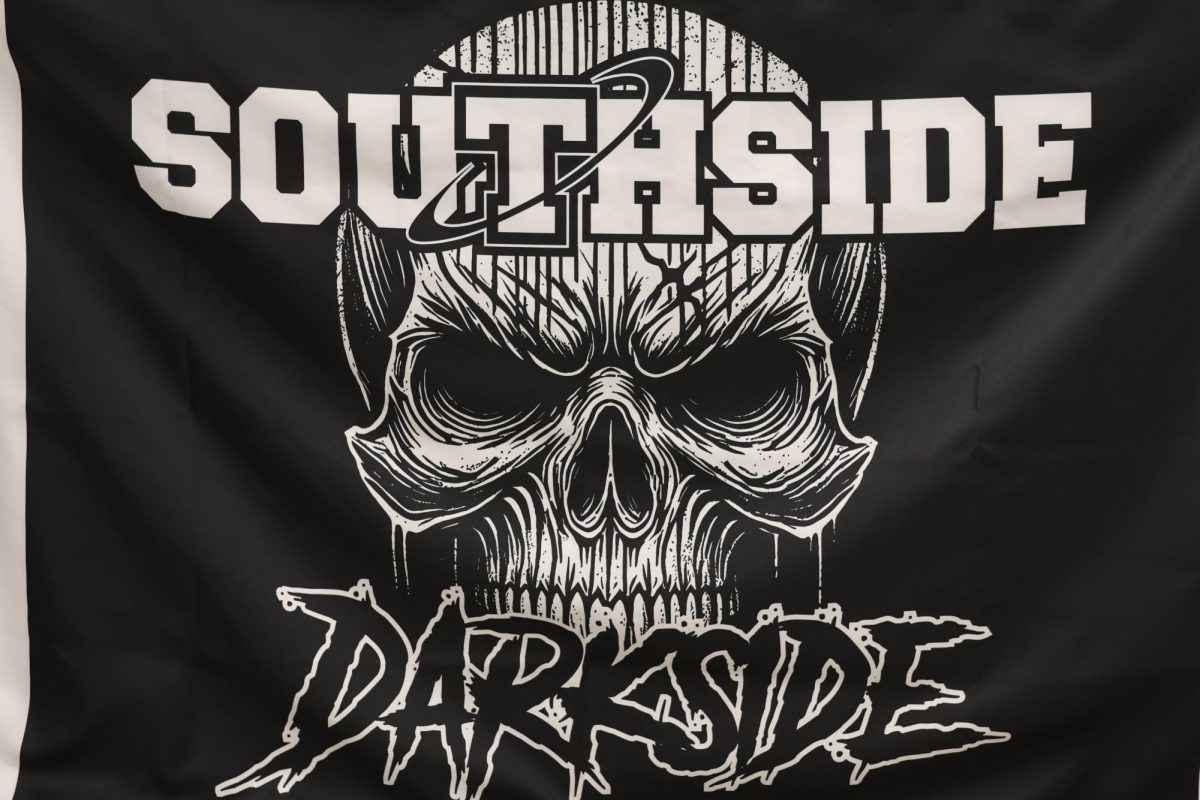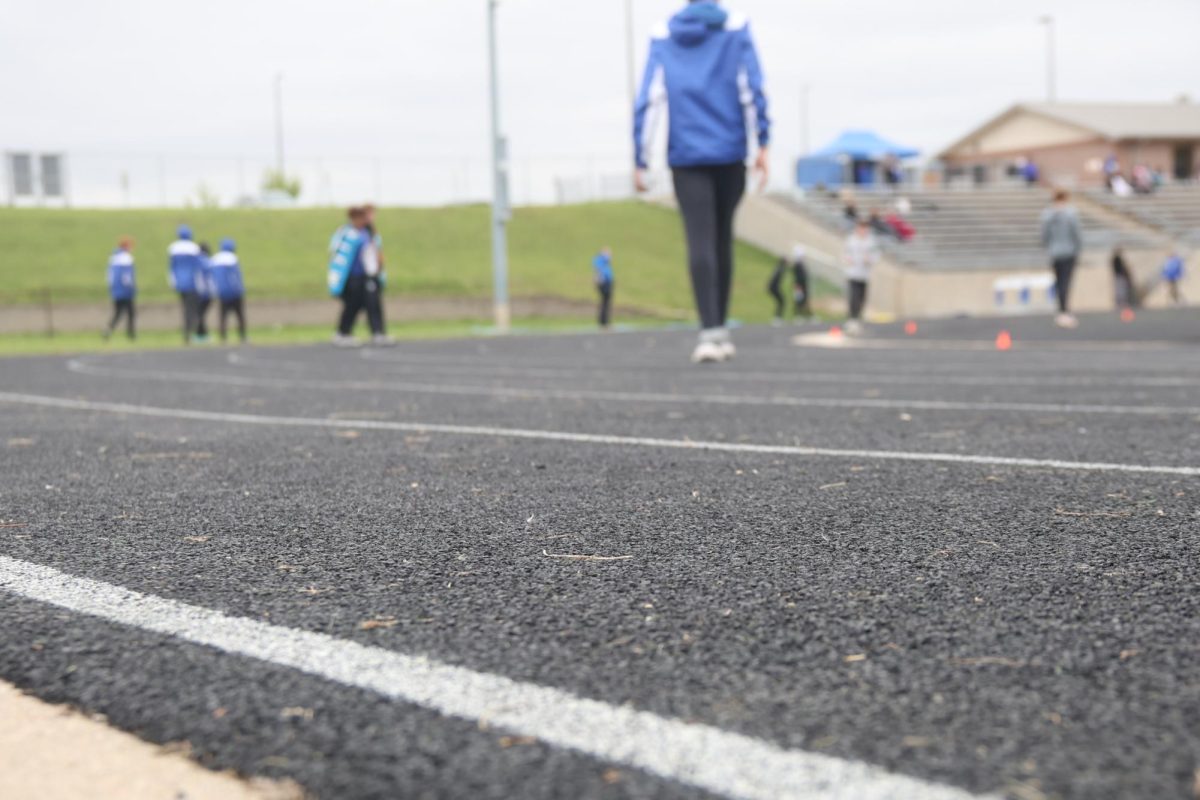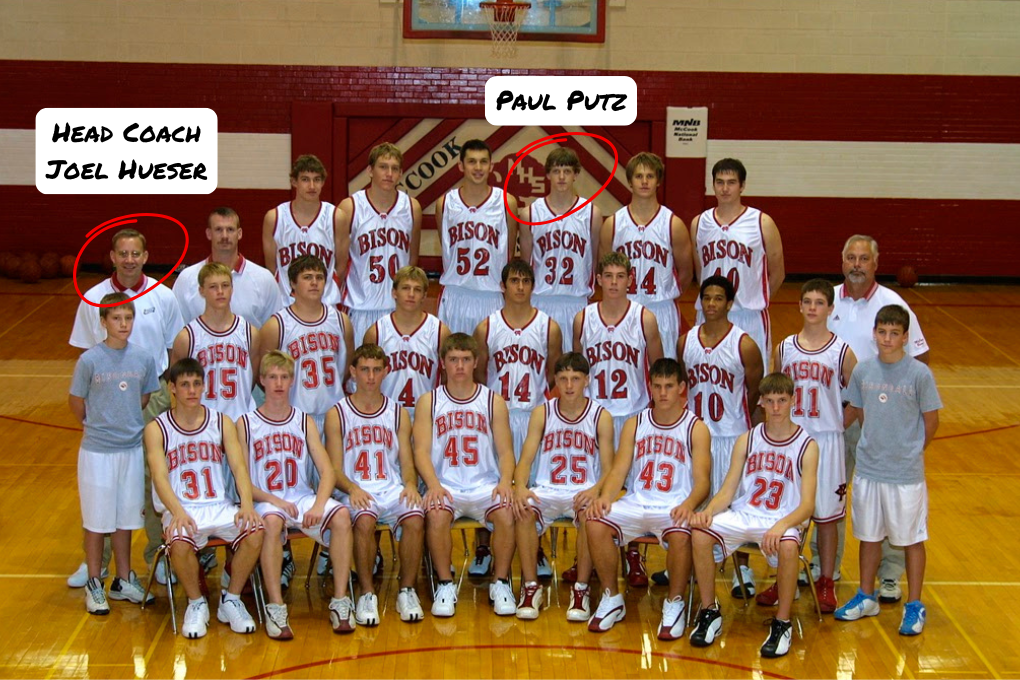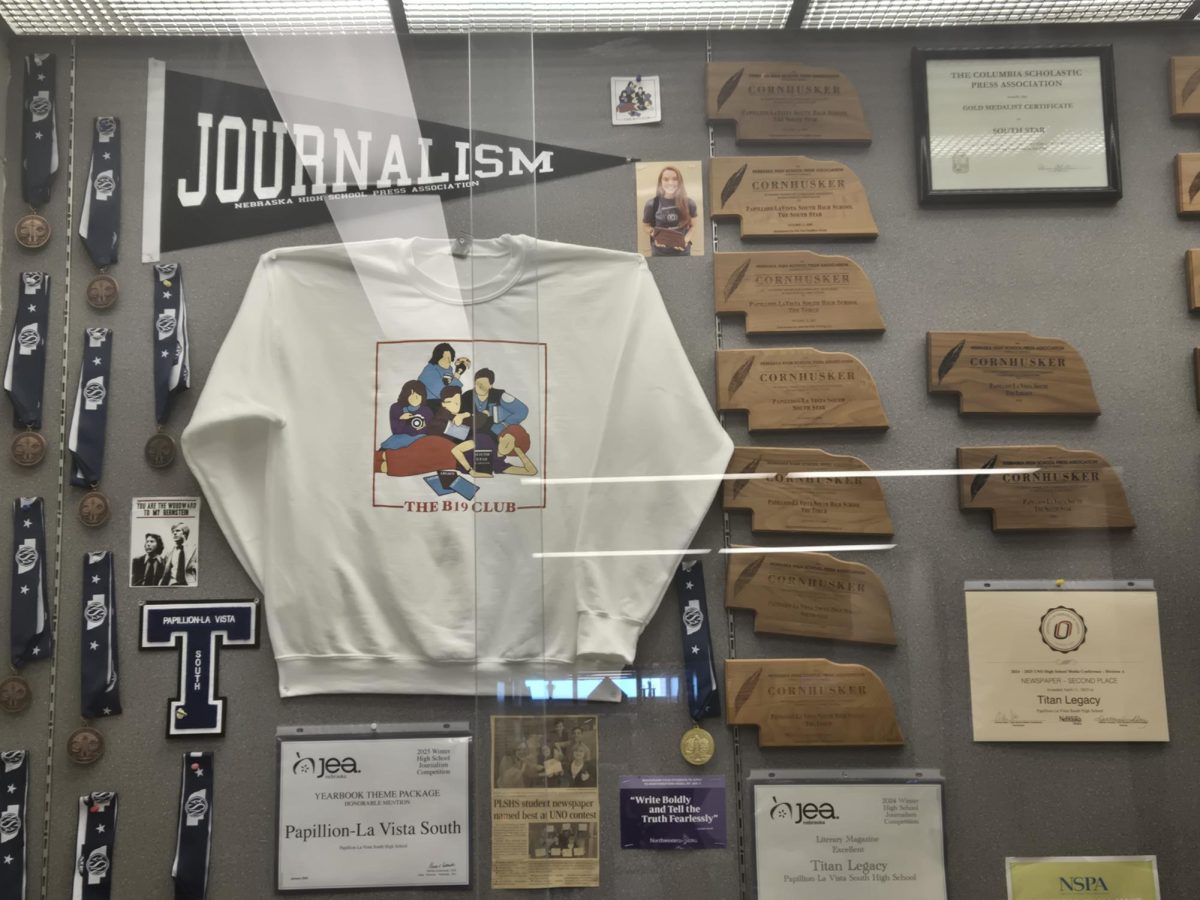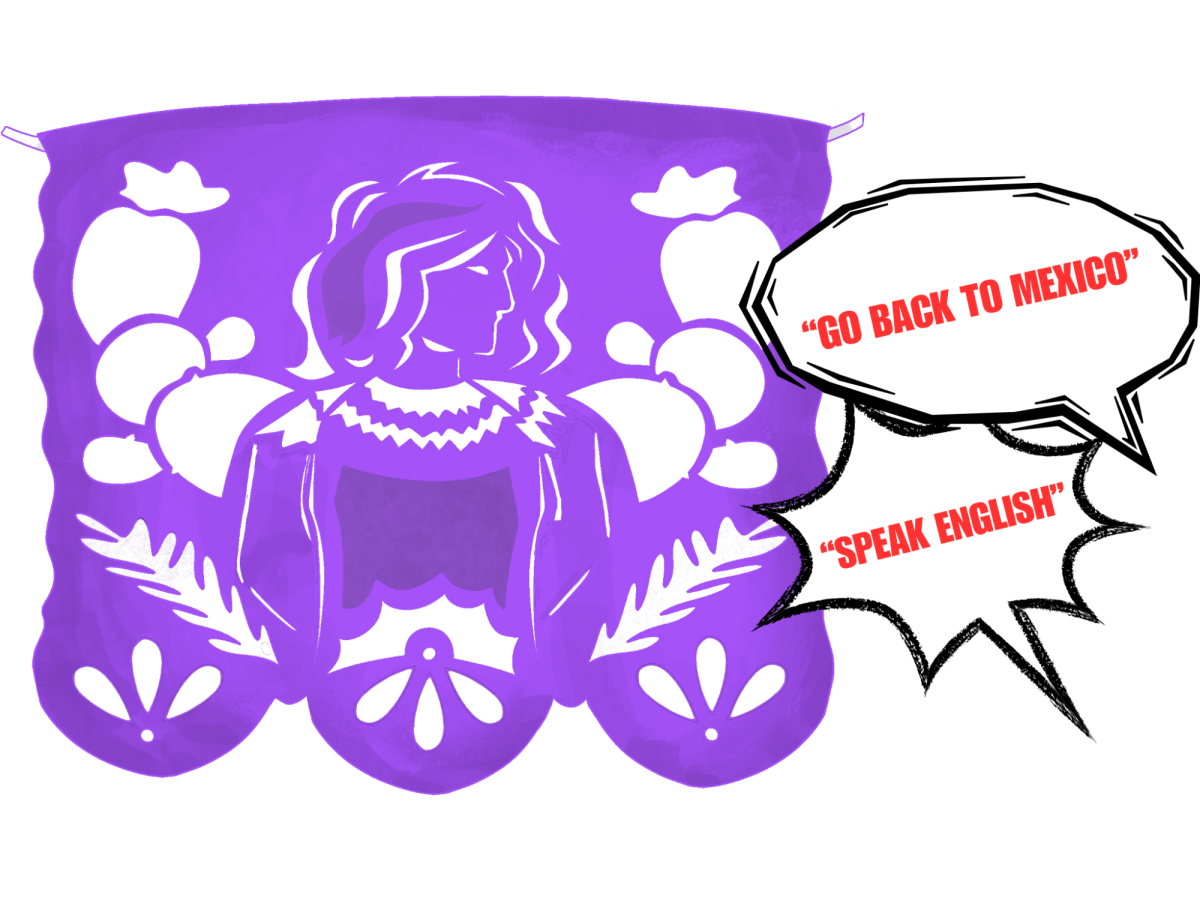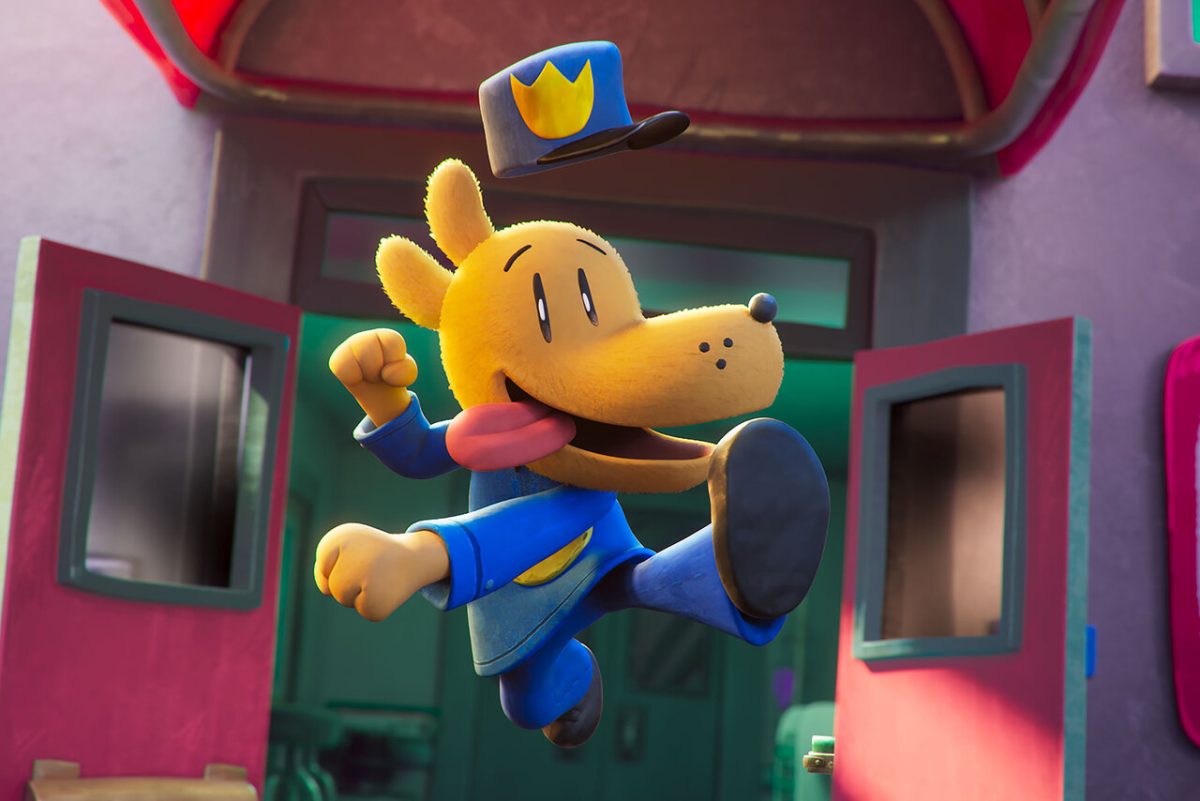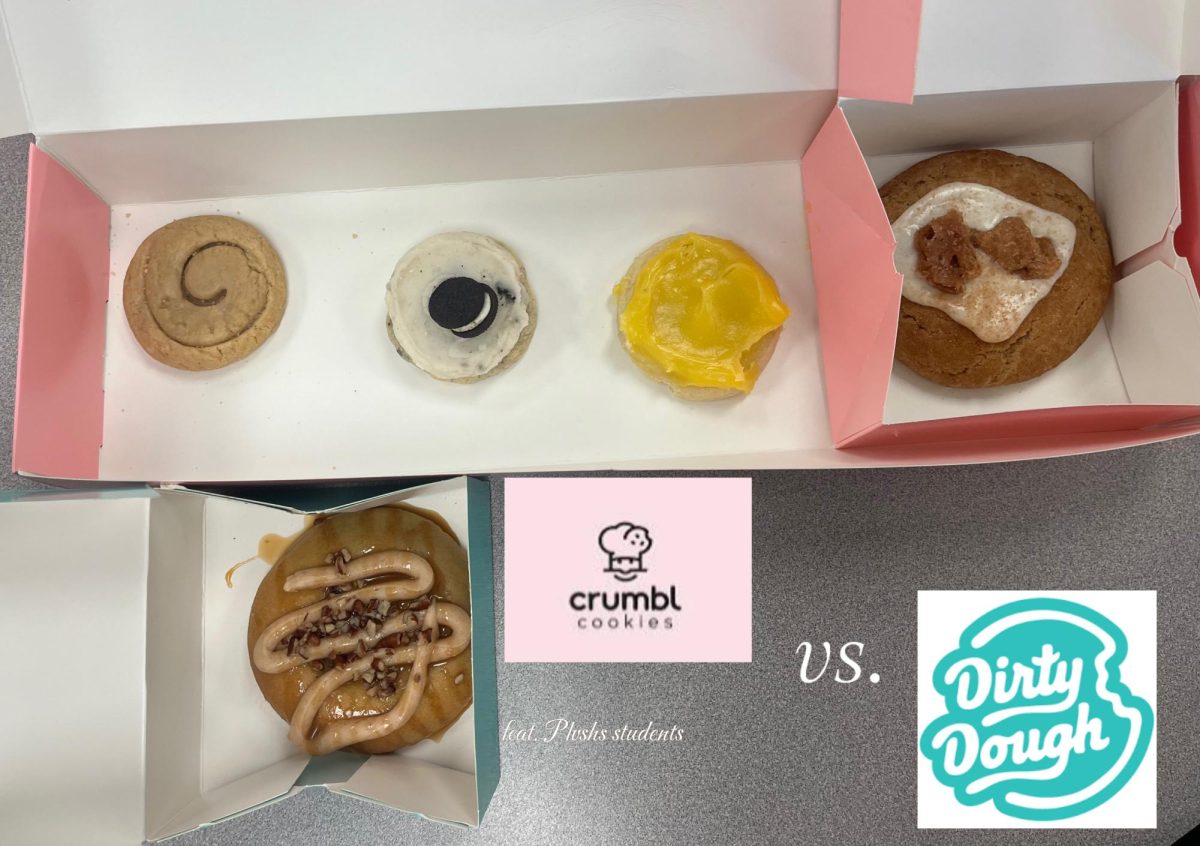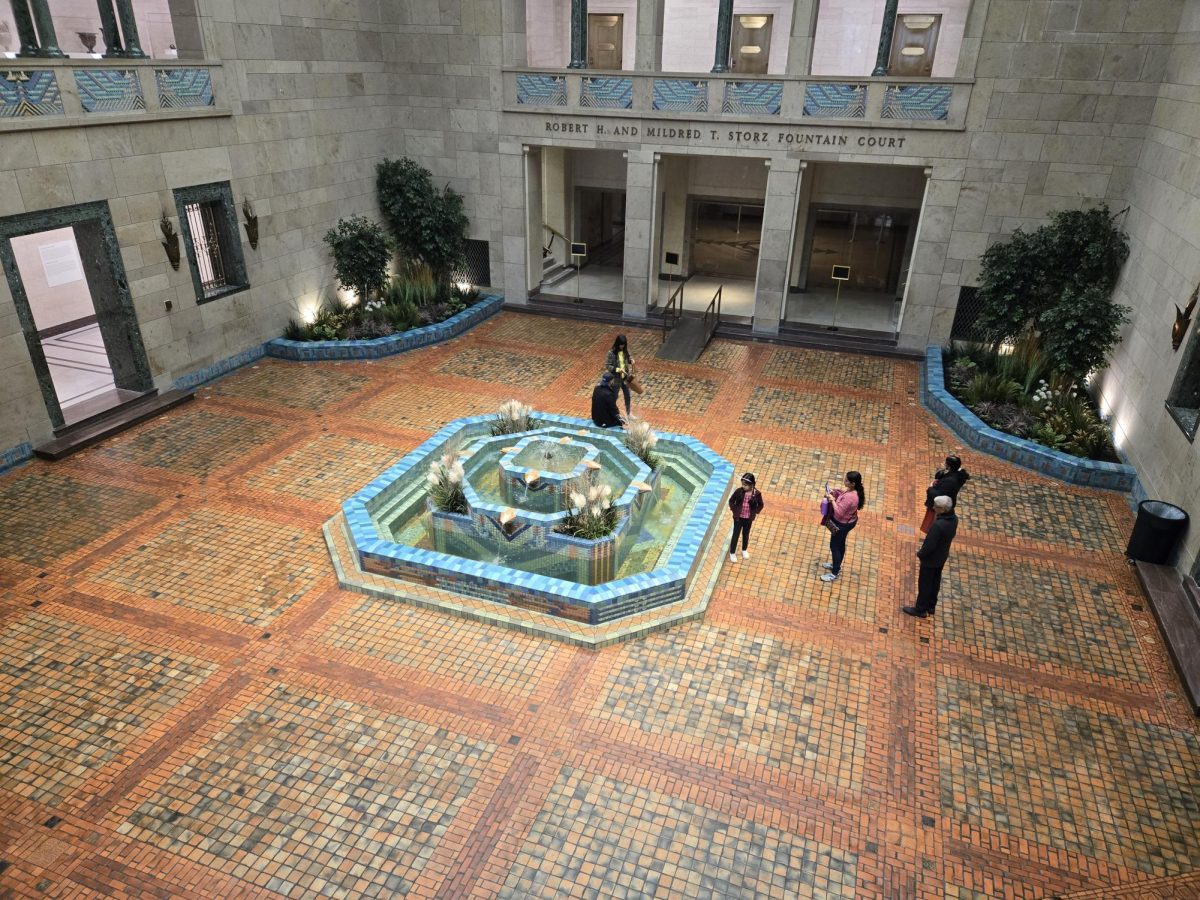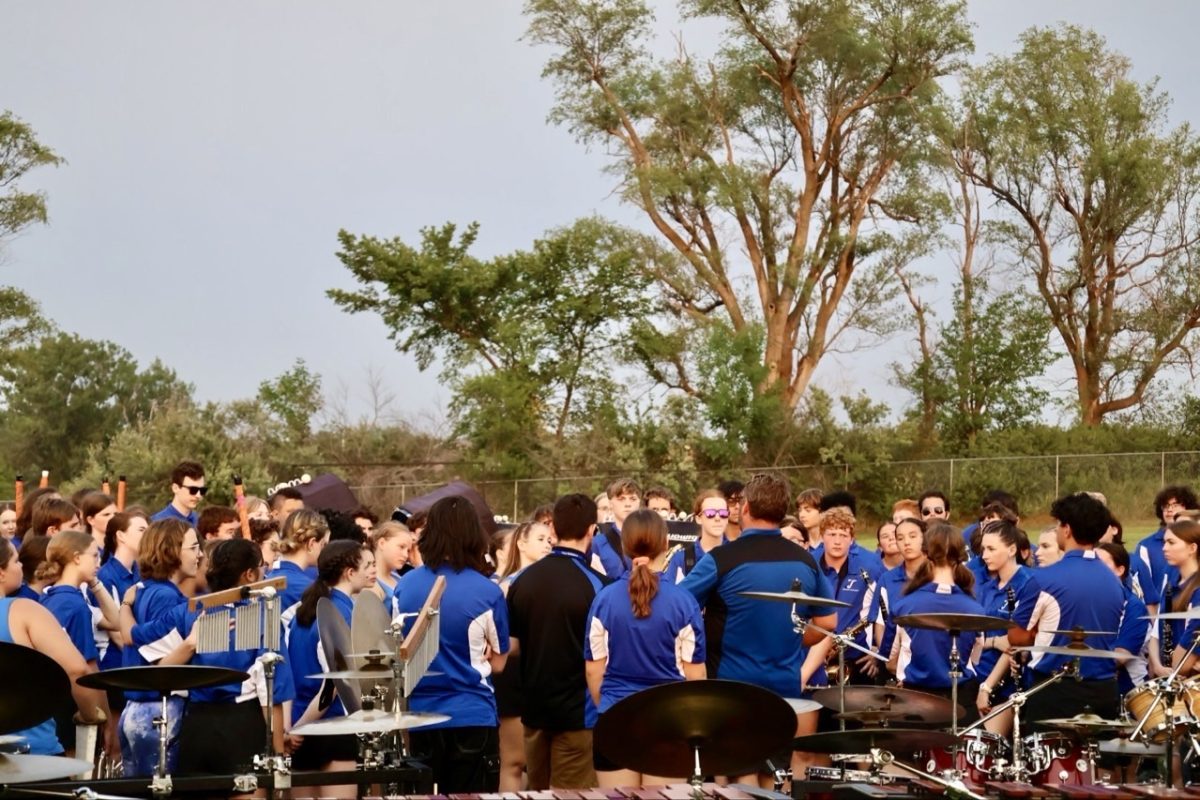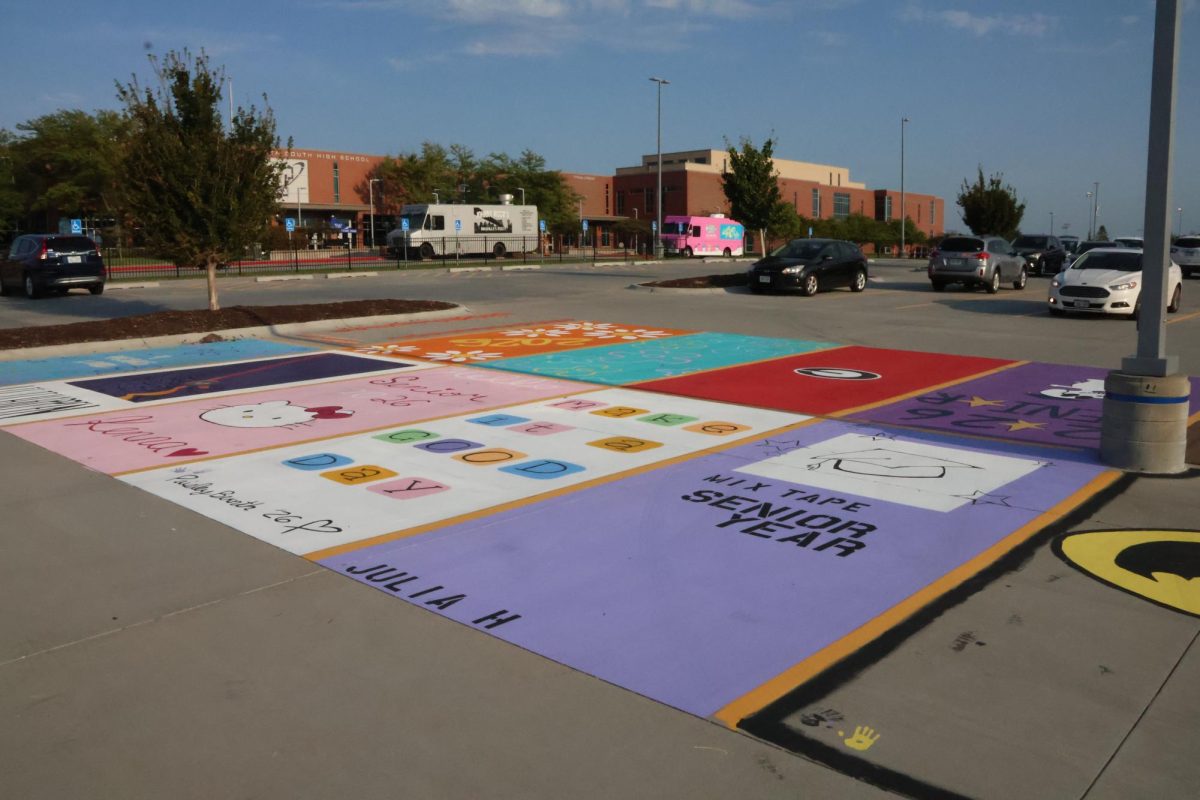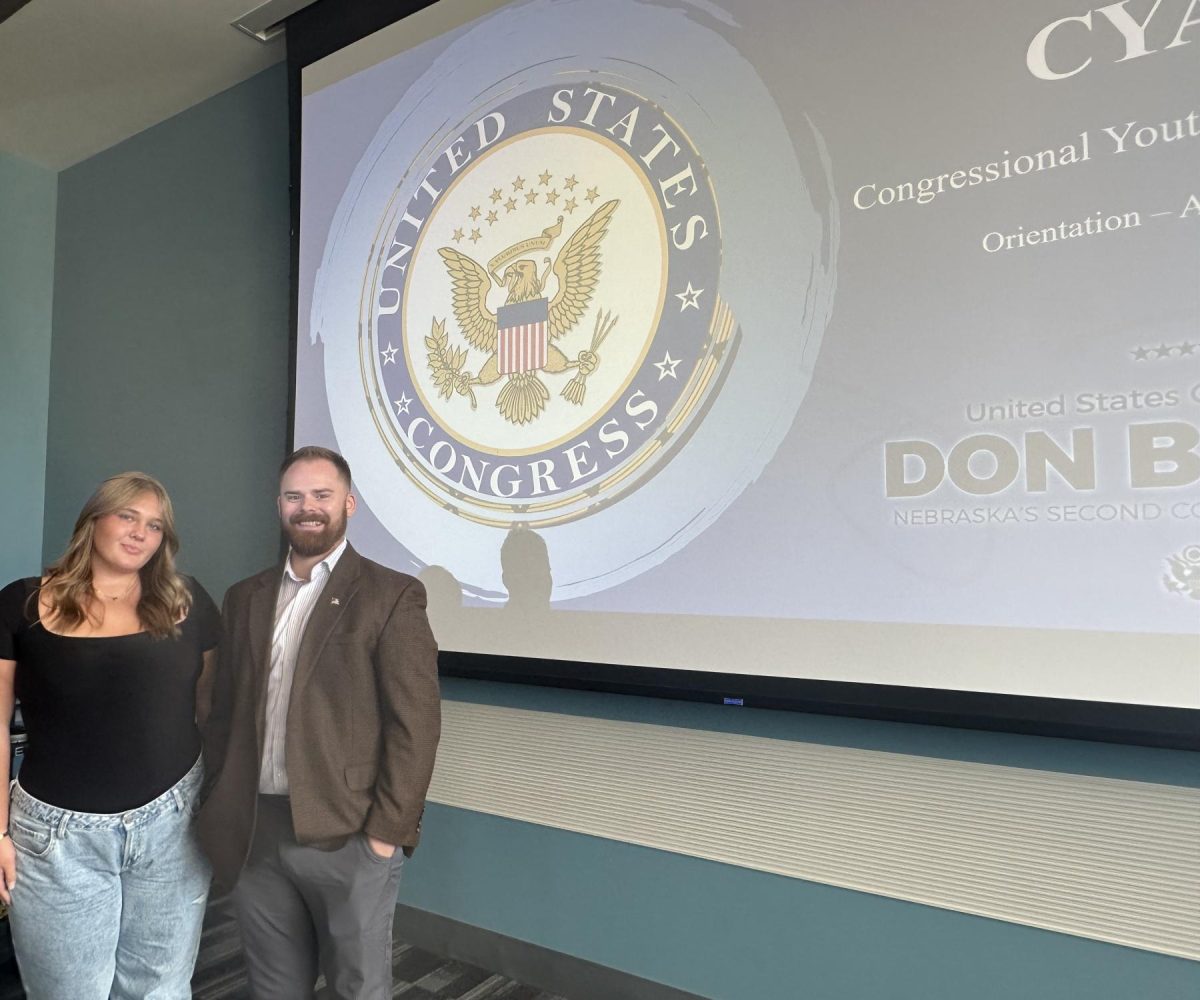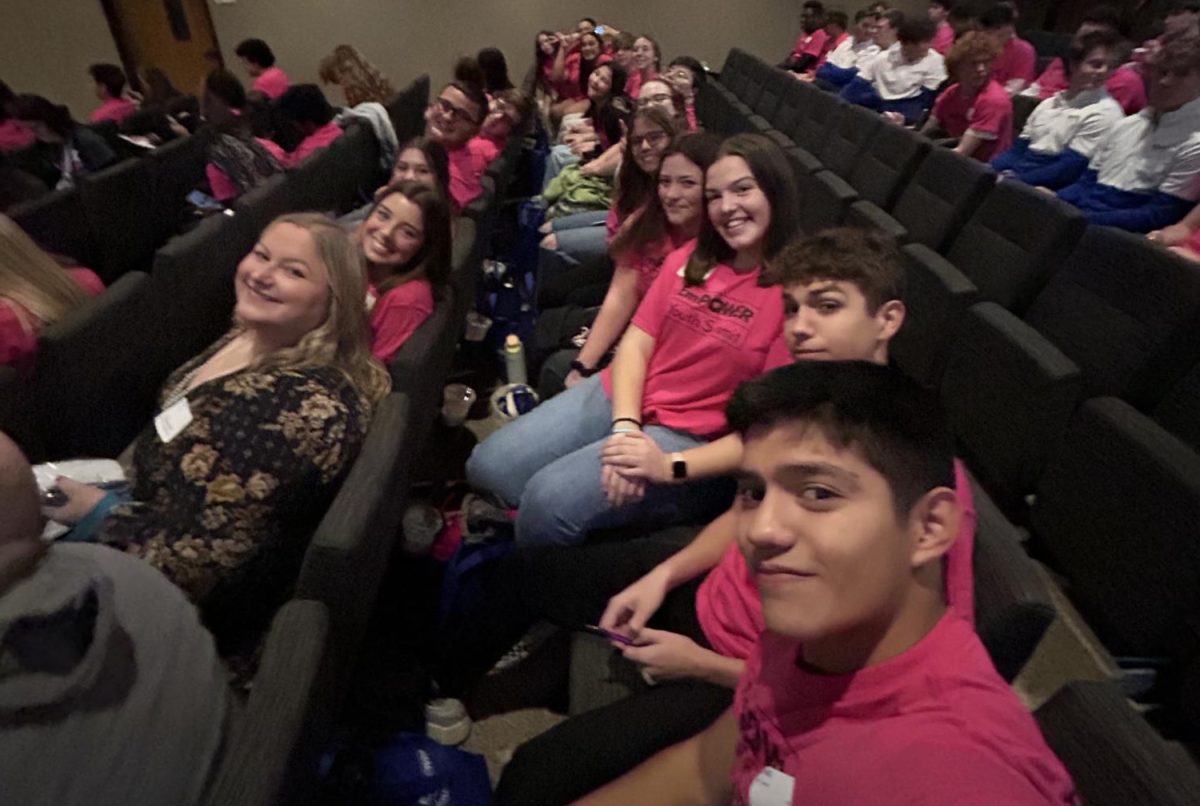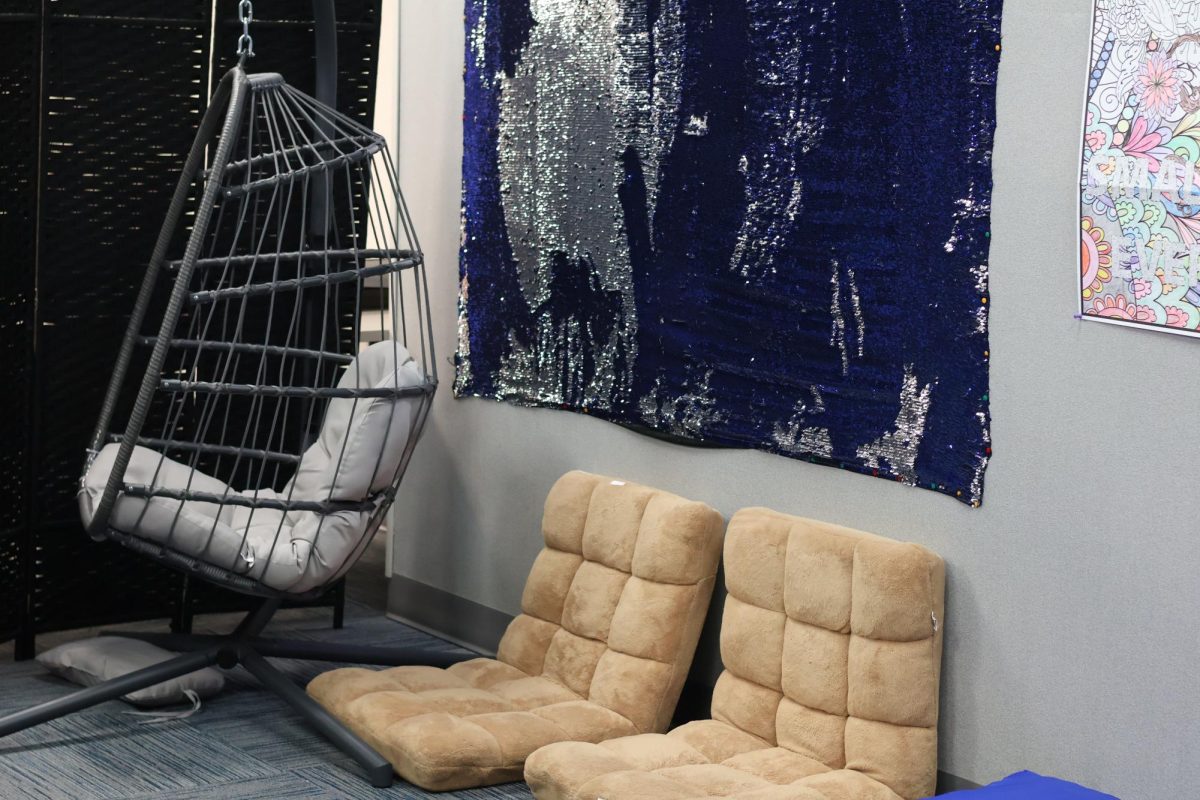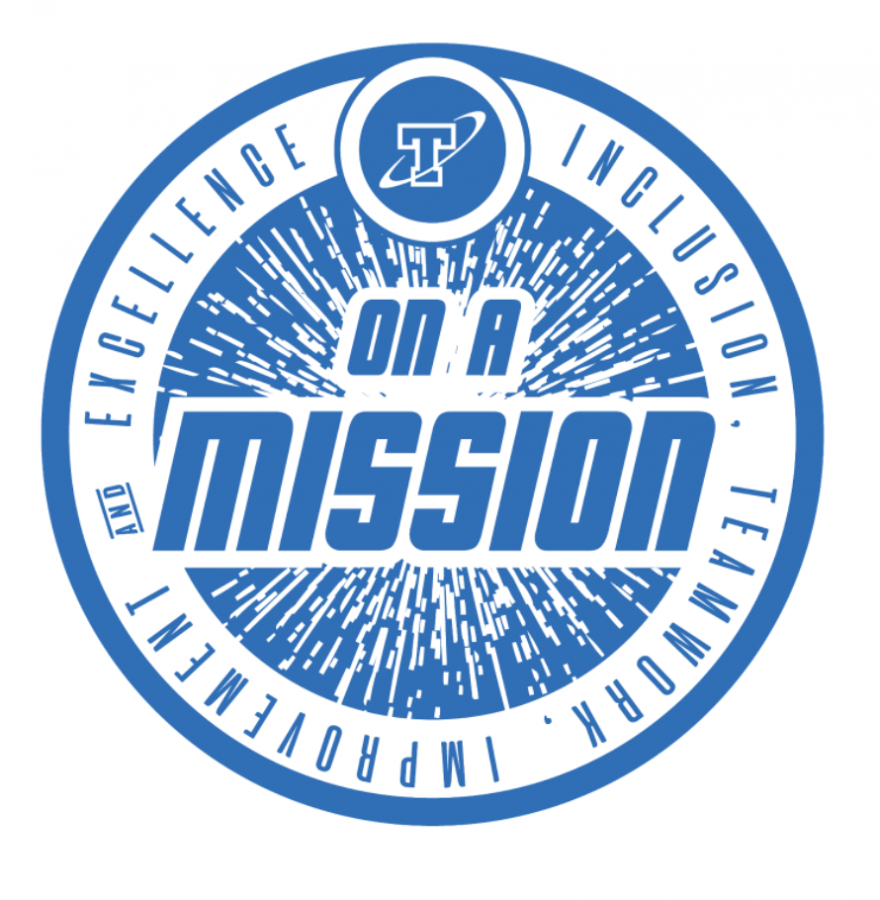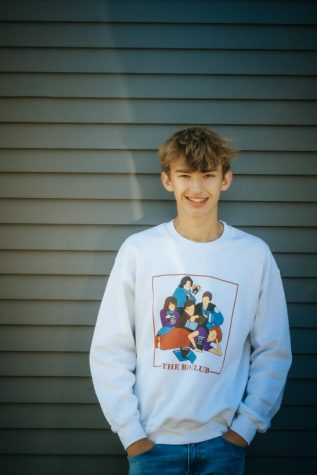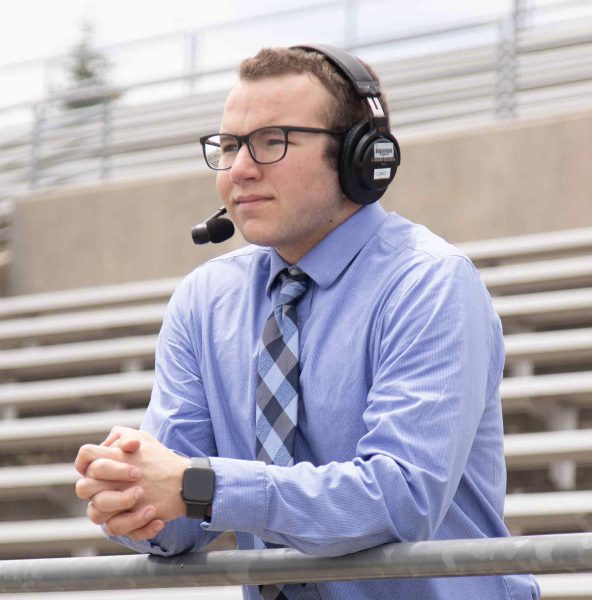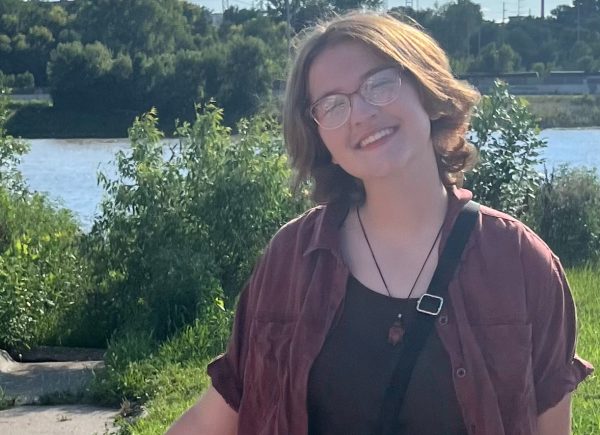Schools value social media despite recent challenges
This logo, placed at the bottom of many official school emails, was used at the bottom of the email sent out by a student claiming school was canceled.
December 1, 2022
Social media presents a double edge sword for public relations and communications in a public school system. One side of the sword gives the schools a sleek tool to deliver quick updates on what’s happening with academics, athletics and fine arts. The other side of the sword opens the opportunity for people to spoof the schools’ profiles and potentially cause trouble.
This potential was recently made clear by two separate incidents in which an unauthorized account user posted a political message on the official Papillion-La Vista South High School Twitter account, and just days later a student used a fake Gmail account and a recognizable format and logo to send a mass email to a significant portion of the Papio South student population claiming school had been canceled.
PLCS Communications Director Annette Eyman pointed out that the district acted quickly to address both issues.
“I will tell you honestly, we rarely have problems,” Eyman said. “I think for the most part, people appreciate the fact that stuff is communicated via social media and see it as another vehicle of communication.”
In response to the Oct. 18 political retweet, the district acted swiftly to remove the post and then immediately took precautionary measures to ensure that no one from outside of the district could gain access to school social media accounts.
“We’ve changed all of our passwords,” Eyman said. “We really tightened up the use of who has availability and access to those individual accounts. So there were some internal procedural things that we put in place to try to make sure that that doesn’t happen again.”
In the Oct. 28 email incident, Principal Jeff Spilker quickly alerted students that the information about a cancellation was false, but there were some realistic aspects to the fake email.
“When we had the email situation, I was like wow, somebody must have got into the actual school system,” Spilker said.
District technology experts quickly discovered that the email was sent out by a student, who had copy-and-pasted a district logo onto the email profile, making it seem real. Attentive readers would have noticed that the message was sent from the Gmail domain, meaning it could not have been sent by the school, which uses the @plcschools.org domain.
Eyman said students need to stay alert to indicators such as this.
“Just because someone puts Papillion-La Vista South High School in the email, you’ve got to look at where the email’s coming from,” she said.
Since the school and technology department handled the situation so quickly, Eyman said it’s not likely that others will try the same stunt.
“I don’t think there potentially is a huge fallout, because we can correct it so quickly in so many different ways,” she said.
Eyman said this sort of thing might be hard to stop from happening again, but there are reasons to believe it won’t.
“I think it just goes back to people – students and general public members – being responsible and understanding that if you do something like this,” she emphasized, “you could not only be breaking school district regulations, but you could be breaking the law.”
Eyman said other measures, already in place, generally have maintained a stable social media presence for the schools.
“I would say we don’t have a huge issue with negativity on our social media accounts,” she said. “That doesn’t mean it couldn’t happen, but we have rules of engagement for each of our social media accounts.”
Papio South has multiple accounts spread across Facebook, Twitter and Instagram. Spilker said these platforms enable the school to share positive information amid a world where social media provides many negatives.
“Our students have some amazing accomplishments that we want to share,” Spilker said. “Our teachers do a really good job. So we want to use our social media to tell their story and to tell some of the amazing things that they’re doing in their positions.”
Eyman also mostly sees positives in the schools’ use of social media and online presence. “We haven’t seen a ton of negatives,” she said. “It has really illustrated that it just opens up another communication avenue to our parents and our broader community.”
At the end of the day, both of the recent occurrences involved people who made mistakes, Spilker said.
“The thing is, oftentimes I work with students who have made a mistake,” the principal explained. “I know sometimes everybody’s focused on the consequences and things like that. But the main focus is learning, and I think that’s something that is not just a high school lesson; I think that’s a lesson that you apply for your entire life.”
